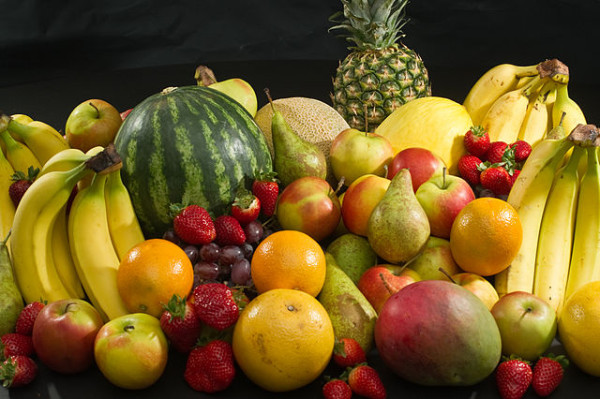Our nutrition expert Sophie Bruno encourages a positive outlook when it comes to diet planning.
The summer months are clearly ideal for change – in more ways that just dieting.
We often set goals that aspire to bring about some form of dietary or weight improvements; although the intent is optimistic, such objectives have a tendency to be overly centred on what should be eliminated from our diets. People often commit to remove a victimised nutrient, pledge to banish junk food or shed an unrealistic amount of weight. At its core, many simply confuse a resolution with a wish. Most well-meant resolutions are commonly broken and cast off.
Embedded perceptions surrounding resolutions need to be reformed. Diet planning should be about embracing positive changes and integrating healthy nutritional habits into everyday lifestyle. Energy should be channelled into making concerted efforts to make realistic, positive changes to the diet via small steps in place of exclusively focusing on removing elements.
Here are seven keys for optimising your health; these can be implemented effortlessly and will confer instantaneous and long-term benefits to your health.
- Eat more Vegetables
This is an undisputed philosophy advocated by health professionals and experts alike. Vegetables confer a plethora of health and nutrition benefits. Not only are they low in fat and calories; they are also rich in healthful components such as fibre, micronutrients and antioxidants. This combination is the perfect recipe to stave off your risk of disease and increase quality of life. The high fibre content also acts to enhance satiation, ensuring you feel fuller for longer. This also means you are less likely to be tempted to snack. Above all, vegetables are delicious and versatile as they come in a multitude of varieties, flavours and colours. As such, they deserve a prominent place in your diet. In order to benefit from the health advantages delivered by vegetables, this should translate into consuming at least five fruit and vegetable portions each day.
- Don’t skip meals
Another important mantra is that structure is more effective than any fad diet in conferring balance. Whatever your dietary goal, skipping meals is counterproductive. Research shows that people who skip meals throughout the day are more likely to overeat at the subsequent meal due to increased cravings for energy-dense foods. This predisposes them to a spectrum of dangerous metabolic changes including elevated fasting glucose and delayed insulin response. These are not only factors for weight gain, but they are concerning precursors to cardiometabolic syndrome, including diabetes and heart disease. Ensure your body has a steady supply of fuel throughout the day to function.
- Start the day with a healthy breakfast
The implementation of healthier eating practices starts with breakfast. By ensuring you eat a healthy breakfast, you are more likely to continue making healthy choices all day long. Your concentration levels will be heightened as your body converts the food into energy. This will also confer stable blood sugar levels, important for controlling appetite. Moreover, the evidence demonstrates that those who eat breakfast are more likely to be a healthy weight.
- Antioxidants
Oxidative stress is the cumulative, day-to-day assault that our cells endure, induced by free radicals. This process is balanced by the body’s internal antioxidant system, co-factors and the incorporation of food sources of antioxidants. However, as we age, our bodies are increasingly subject to oxidative stress, as we are less able to combat this manifestation. This can cause permanent damage to our DNA and has been implicated in cancer, cardiovascular disease and a cluster of other chronic conditions. As such, you should aim to have a diet rich in antioxidants. A healthy, balanced diet encompassing fruit, vegetables and whole grains will deliver a range of powerful antioxidants and bioactive components, including vitamin C, E, A, flavonoids and selenium. Specific foods that are identified as being particularly rich in antioxidants include blueberries, almonds, beetroot and green leafy vegetables such as broccoli, spinach and kale.

- Omega-3
Omega-3s are currently a hot topic as they have been shown to have an important role in ageing and the prevention of heart disease, Alzheimer’s disease, improvement of hypertension, blood lipid profiles and cognitive function. They have also been linked with the healthy development of babies during pregnancy and breastfeeding. Omega-3s are also reputed to have anti-inflammatory and antioxidant properties. Fish is one of the richest sources of long-chain omega-3s, especially oily fish. To benefit from the health effects of omega-3 aim to consume two portions of fish per week, one of which should be oily, such as salmon, mackerel, sardines, fresh tuna and anchovies. Consuming whole fish over supplementation may be more advantageous, due to the synergistic interactions nutrients found in fish that bring about health benefits and make your diet planning easier.
- Eat Mindfully
If you practice eating slowly and be more conscious of the eating experience moment, your body stands more of a chance of perceiving when you are full, avoiding overindulging. Your brain and digestive system are intricately connected via an extensive network of neurons, chemicals and hormones, called the gut-brain axis. They constantly feed messages back to the brain such as the status of hunger or if we have ingested a disease-causing microbe. It normally requires 20 minutes after food is ingested to transmit signals to the brain. As such, by taking your time whilst eating you are more likely to sense when you are full, decreasing the use of food to mask a deeper emotional need.
- Drink plenty of Water
Aim to drink 2 litres of fluid per day in order to remain hydrated. A lack of water consumption can result in headaches, tiredness and under performance. Drinking water can be a good strategy to feel fuller. Water is also affordable and a healthy way to quench your thirst as it contains no calories. If you don’t like the taste of plain water, try sparkling water or adding a slice of lemon or lime.
Market photo: en:User:Daderot.
Close up fruit: Ionutzmovie







